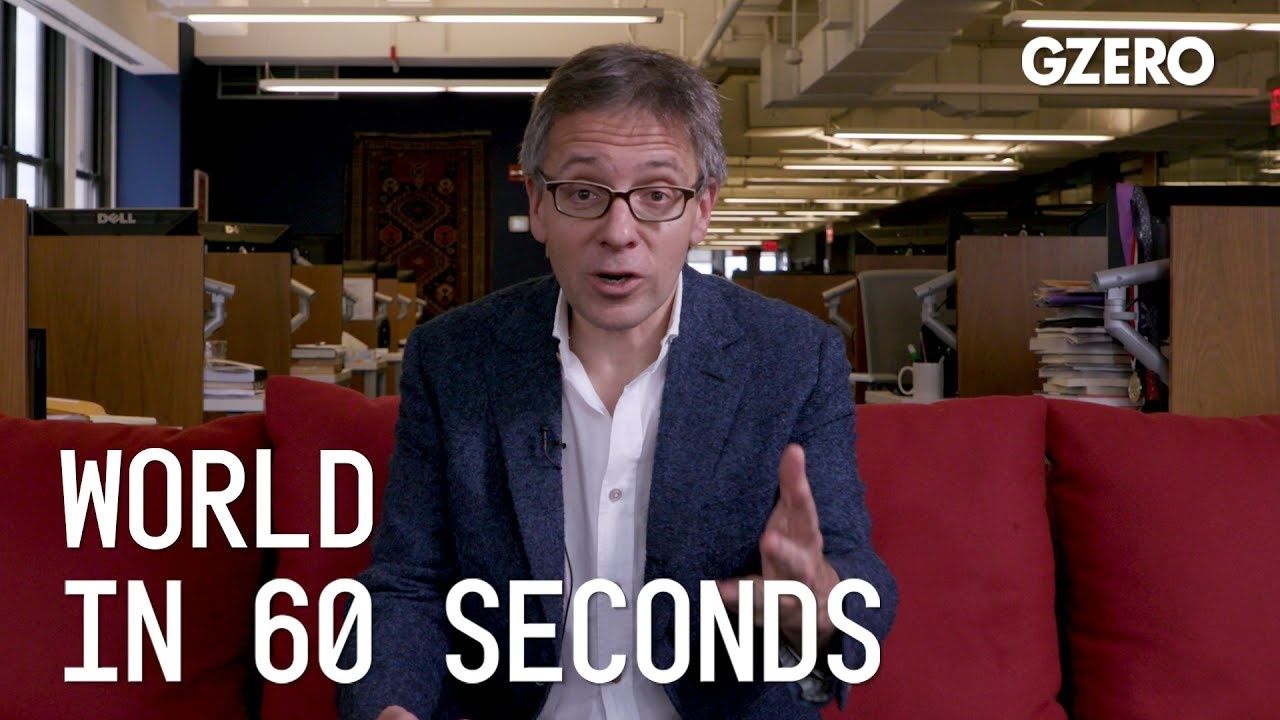In 60 Seconds
Coronavirus: impacts on global politics

Coronavirus: impacts on global politics | Xi, Putin; Italy; US election | World In :60 | GZERO Media

Ian Bremmer's perspective on the impacts of COVID-19 on big issues in geopolitics:
Does a global pandemic like coronavirus bolster the argument for leaders like Xi and Putin to remain in power forever?
Well, you'd certainly think so. I mean, Putin is now moving a constitutional referendum forward so that he can be president for two more additional terms. We'll never get rid of the guy. But is that justified by coronavirus because they can actually crack down and get the population to do whatever they want? I don't think that justifies it, especially because the reason why this pandemic expanded as explosively as it did is because the Chinese lied about it, covered it up, didn't have data, didn't have local officials that were able to have the legitimacy or the trust to understand what they were dealing with early. In an advanced developed economy with transparency and more legitimacy, you wouldn't have had that problem despite all of the ability of the Chinese to then crackdown once they realized at a national level just how dangerous this was.
What lessons can other countries take from Italy's response to coronavirus?
Well, number one, get testing done at scale early, so you know what you're dealing with. I mean, 5 percent mortality in Italy right now is nowhere close to what it really is. It should be about one tenth that. That's because they haven't been doing the testing. And given that it's been explosive, and they didn't contain it, they're now doing everything they can to try to keep people from interacting, the social distancing, which can have a bigger impact on their economy. So, if you can't contain early, you're going to have to take tougher measures that will impact your economy. South Korea's gotten this much better. Singapore, too, but the small than the Italians have.
If coronavirus transmission continues through the year, what will that mean for the US election and Trump?
It's going to change our views on whether or not Trump can be reelected. If it keeps going and it has a meaningful impact on the economy, then obviously the likelihood that he wins reelection against, looks like Joe Biden, is a hell of a lot lower. Also, the likelihood that Trump will earlier interfere with the election to try to ensure that he can secure reelection, that goes up. Questions of the legitimacy of election, is it rigged? Don't wait till November. They probably happen over the next few months.
5: US President Donald Trump added five new countries – Burkina Faso, Mali, Niger, South Sudan, and Syria – to the list of nations banned from traveling to the US.
With the release of its National Security Strategy, the Trump administration has telegraphed how the US intends to engage with allies, and what it expects from them.